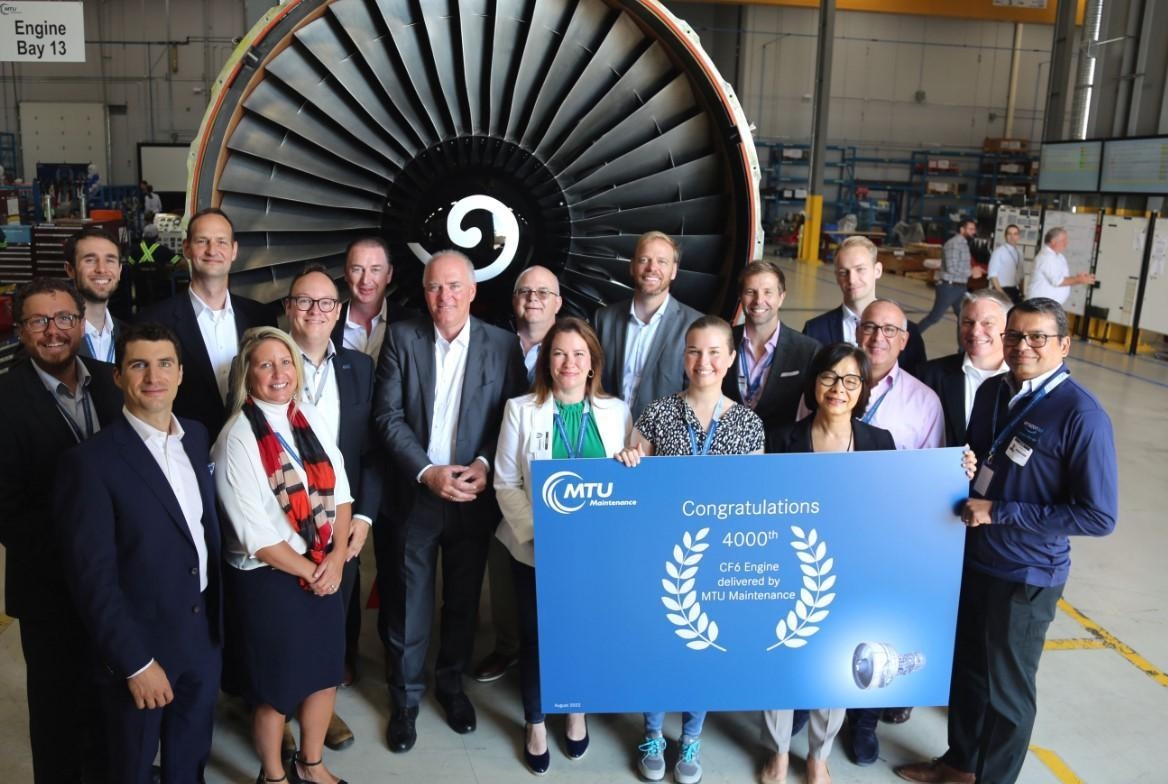AeroGenie — Your Intelligent Copilot.
Trending
Categories
MTU Secures CF6-80C2 Engine Maintenance Contract with Air Canada

MTU Maintenance Secures CF6-80C2 Engine Maintenance Contract with Air Canada
Strengthening a Longstanding Partnership
MTU Maintenance has formalized an exclusive agreement with Air Canada to provide maintenance, repair, and overhaul (MRO) services for the CF6-80C2 engines that power the airline’s Boeing 767 cargo fleet. This contract extends a partnership spanning more than 25 years, during which MTU has served as Air Canada’s sole MRO provider for these engines.
According to the terms of the agreement, Air Canada will continue to send its wide-body aircraft engines to MTU Maintenance Canada’s facility in Delta, British Columbia, where they will receive comprehensive services including performance restorations, overhauls, and accessory repairs. MTU Maintenance Hannover will lend its specialized expertise in CF6-80C2 engines to support the Canadian operations, while MTU Maintenance Dallas will provide on- and near-wing services, acting as the North American hub for ON-SITEPlus support. The contract is scheduled to run through 2027, with an option to extend for an additional three years, underscoring the commitment of both companies to a stable and collaborative partnership.
Commitment to Excellence and Sustainability
Josh Vanderveen, Vice President of Maintenance at Air Canada, highlighted the significance of renewing the partnership, emphasizing MTU’s critical role in maintaining the Boeing 767 engines. He expressed satisfaction with the extension, noting the strategic importance of the freighter fleet within Air Canada’s network. Vanderveen affirmed that MTU’s expertise will ensure reliable performance for the airline’s cargo customers and stressed the value of supporting the aerospace industry in British Columbia and across Canada by retaining work domestically.
Vanderveen also emphasized the alignment of the partnership with Air Canada’s operational and environmental objectives. By leveraging MTU’s advanced technology and expertise, the airline aims to reduce its carbon footprint while maximizing the lifespan of its fleet. This collaboration is positioned to establish new benchmarks in the aviation industry for both sustainability and performance.
Market Context and Industry Implications
The agreement reflects Air Canada’s confidence in MTU’s capabilities amid a competitive and cost-sensitive MRO sector. Industry analysts suggest the contract may elicit mixed reactions in the market. Some investors may interpret the extended partnership as a positive signal of long-term stability and reliability, while others may focus on the challenges associated with cost management in a highly competitive environment.
Furthermore, the deal could prompt rival MRO providers to enhance their service offerings or seek exclusive agreements with other carriers, potentially intensifying competition within the sector.
Future Outlook
As Air Canada continues to expand its cargo operations, the renewed partnership with MTU Maintenance is expected to support both operational excellence and sustainability goals. This collaboration not only enhances the reliability of the airline’s fleet but also contributes to the growth of the Canadian aerospace industry, highlighting the strategic importance of local expertise and innovation in a rapidly evolving market.

Emirates Unveils Cabin Design for New Boeing 777X

Eighteen Years On, the Airbus A380 Remains Central to a $34 Billion Airline

How a boom in luxury airline seats is slowing down jet deliveries

Navitaire Outage Attributed to Planned Maintenance

DigiYatra Debuts Outside Aviation at India AI Impact Summit

Vietnam Orders Strengthen Boeing’s Commercial Outlook

Airbus Signals Uncertainty Over Future A400M Orders

JobsOhio Awards $2 Million Grant to Hartzell Propeller for Innovation Center

Collins Aerospace Tests Sidekick Autonomy Software on YFQ-42A for U.S. Air Force CCA Program

How the Airbus A350-1000 Compares to the Boeing 777
